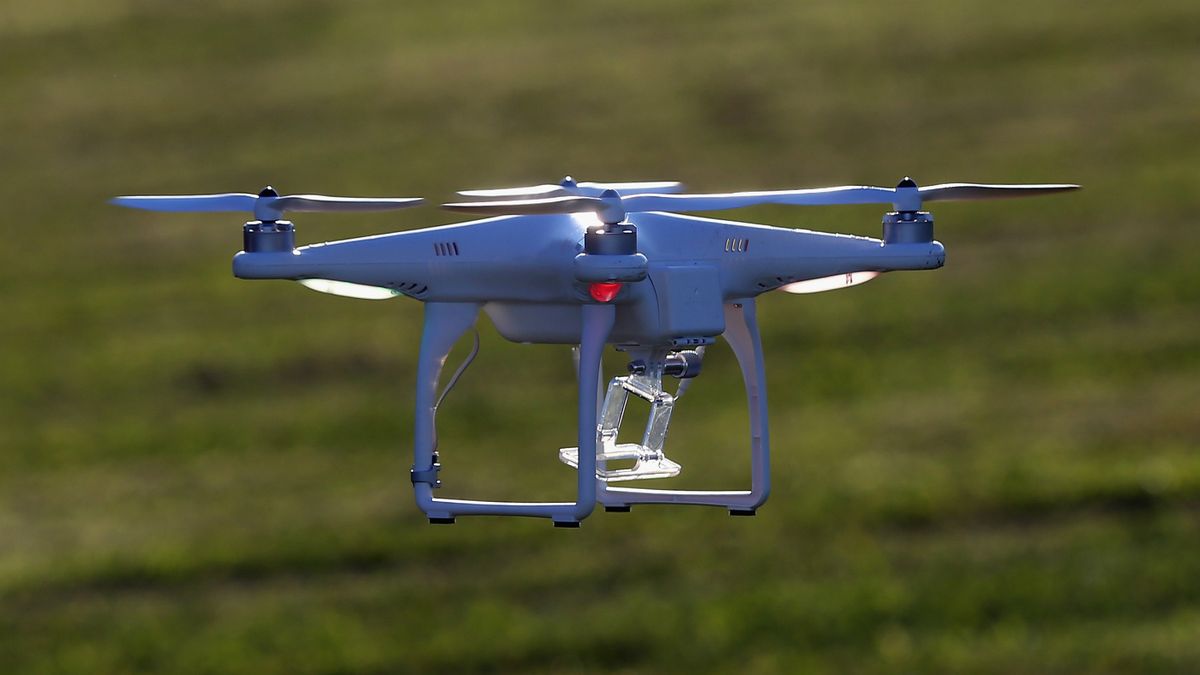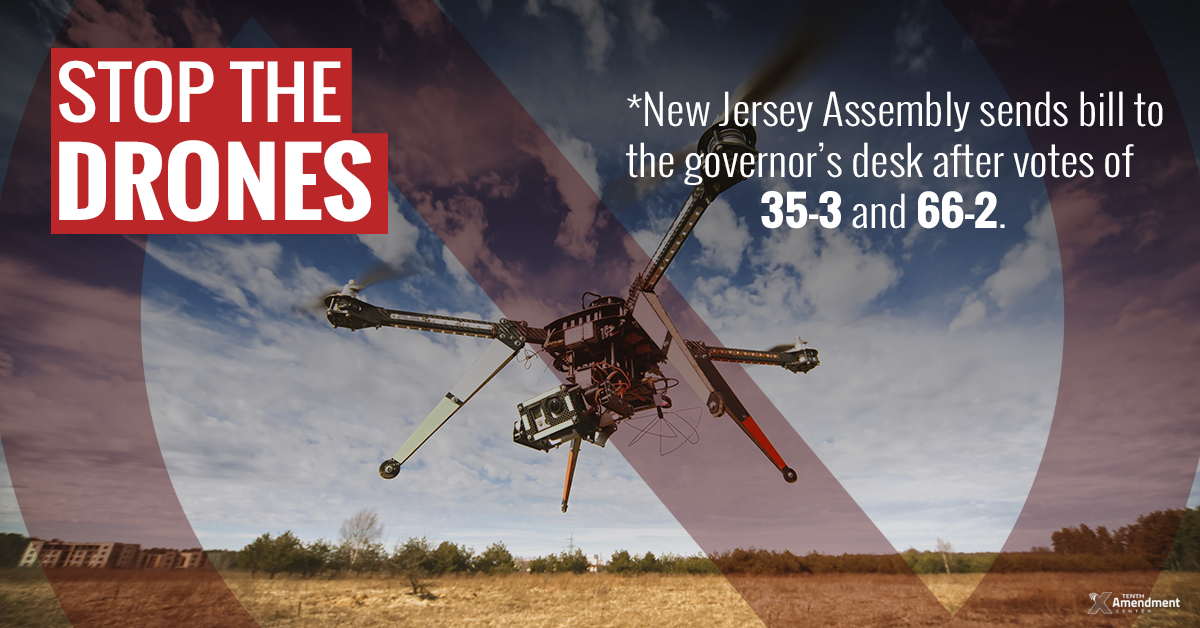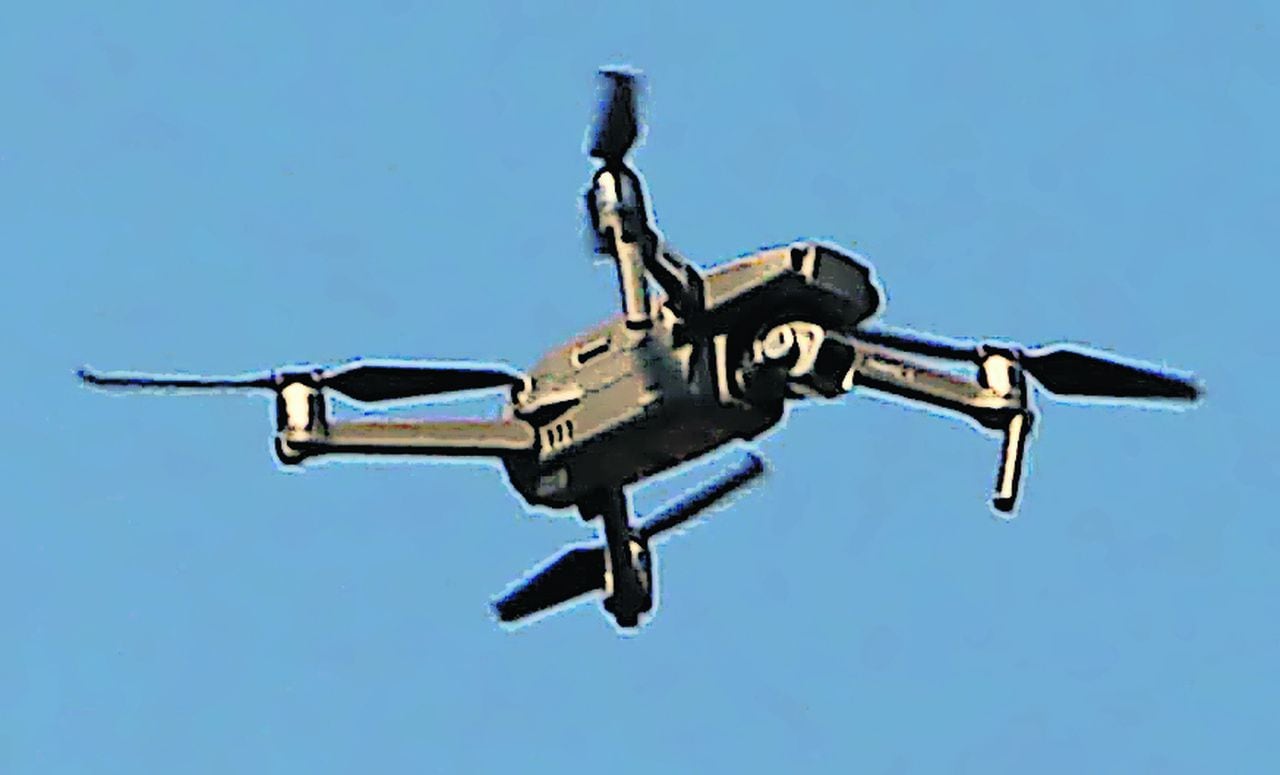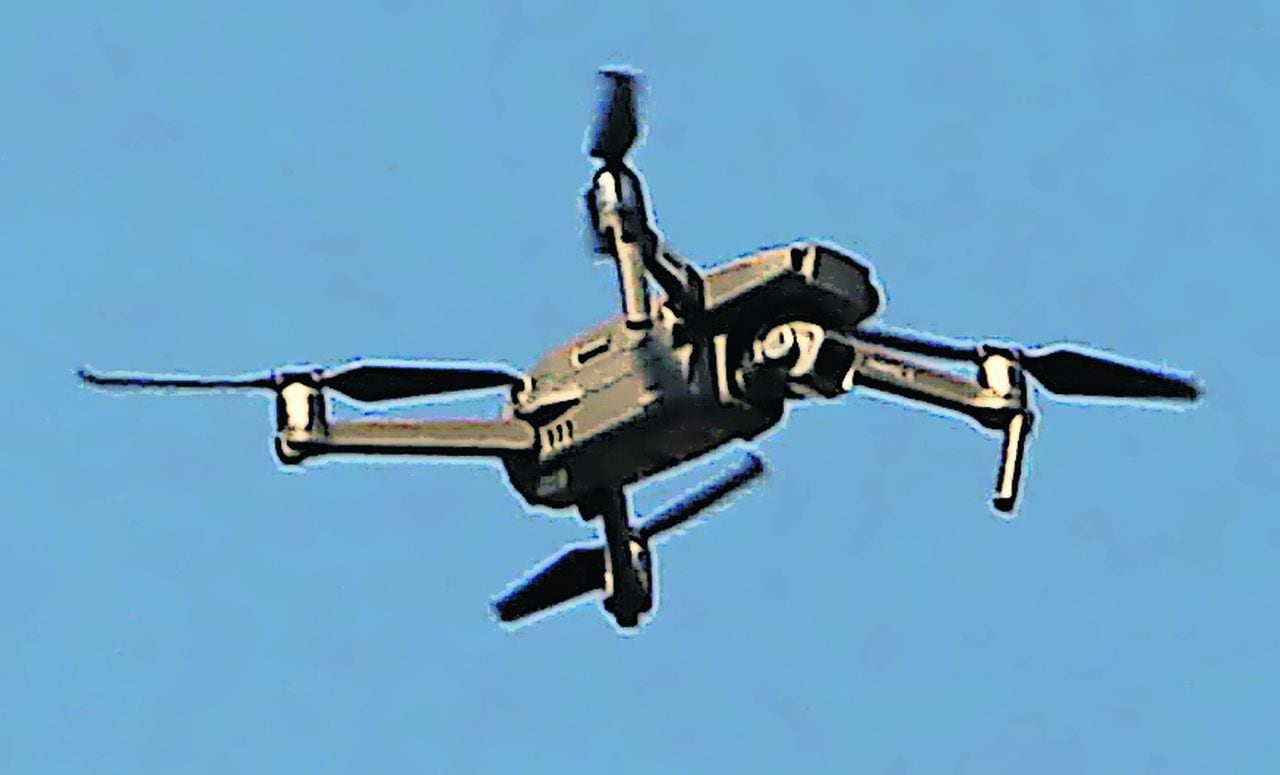Drones Over New Jersey Solved: This comprehensive analysis delves into the multifaceted world of drone regulation, incidents, and technological advancements within the Garden State. We explore the legal framework governing drone operation, examining both successes and challenges in managing airspace safety and privacy concerns. The narrative encompasses a range of perspectives, from public perception and awareness to the innovative applications of drones in emergency response and beyond.
From near misses with aircraft to concerns about unauthorized surveillance, the use of drones in New Jersey presents a complex interplay of technological innovation and societal implications. This exploration investigates the current state of drone regulation, the effectiveness of existing monitoring technologies, and the ongoing efforts to balance technological progress with public safety and privacy. We’ll examine both the challenges and opportunities presented by the increasing integration of drones into New Jersey’s airspace.
Legal Aspects of Drone Usage in New Jersey

Navigating the legal landscape of drone operation in New Jersey requires understanding state-specific regulations and potential penalties. This section will clarify the current laws, compare them to neighboring states, and illustrate potential legal conflicts through hypothetical scenarios.
New Jersey Drone Laws and Regulations

New Jersey’s drone laws largely align with federal regulations under the Federal Aviation Administration (FAA). These regulations cover areas such as registration requirements for drones weighing over 0.55 pounds, licensing for commercial drone operation, and restrictions on flying near airports or sensitive areas. Specific state laws may further restrict drone operation in certain locations, such as state parks or near critical infrastructure.
Operators must maintain visual line of sight with their drone and adhere to altitude limitations. Failure to comply can result in significant penalties.
Penalties for Violating Drone Laws in New Jersey
Penalties for violating New Jersey’s drone laws vary depending on the severity of the infraction. Minor violations might result in warnings or fines, while more serious offenses, such as unauthorized surveillance or reckless operation endangering public safety, could lead to substantial fines and even criminal charges. The penalties could also include the seizure of the drone.
The recent spate of unauthorized drone activity over New Jersey appears to be resolved, at least for now. Authorities successfully addressed several incidents, including one particularly concerning event detailed in this report: nj drone shot down. The swift response highlights the importance of robust counter-drone measures in maintaining airspace security, ensuring that the skies above New Jersey remain safe.
Comparison with Neighboring States’ Drone Regulations
New Jersey’s drone regulations are generally consistent with those of neighboring states like New York, Pennsylvania, and Delaware. However, specific local ordinances might differ. For example, some municipalities may have stricter rules regarding drone operation in parks or residential areas. A thorough understanding of both federal and local regulations is crucial for safe and legal drone operation.
Legal Cases Involving Drones in New Jersey
While specific details of legal cases are often confidential, reported incidents involving drones in New Jersey have involved issues like privacy violations, unauthorized aerial photography, and near misses with manned aircraft. These cases highlight the importance of responsible drone operation and awareness of legal boundaries.
Hypothetical Legal Conflict and Solution
Imagine a scenario where a drone operator, filming a real estate property for a client, unintentionally captures footage of a neighboring property showing private activities. This raises privacy concerns. A potential solution would involve adhering to strict guidelines on flight paths and notifying neighbors beforehand. Additionally, the operator should ensure all footage respects privacy laws and only includes publicly visible areas of the target property.
Common Drone-Related Incidents in New Jersey
Understanding the most frequent drone incidents in New Jersey is crucial for implementing preventative measures and improving public safety. This section analyzes the types of incidents, their causes, and potential solutions.
Frequent Drone Incidents in New Jersey, Drones over new jersey solved

Common drone incidents in New Jersey include near misses with aircraft, privacy violations, unauthorized surveillance, and property damage. These incidents often stem from a lack of awareness regarding airspace regulations, responsible operation, and the legal implications of drone use.
Statistics on Drone-Related Incidents (2019-2023 – Hypothetical Data)
The following table presents hypothetical data illustrating the frequency and nature of drone-related incidents. Actual data would need to be collected from official sources like the FAA and local law enforcement.
| Date | Incident Type | Location | Outcome |
|---|---|---|---|
| 2019-06-15 | Near miss with aircraft | Newark Liberty International Airport | Warning issued to operator |
| 2020-11-01 | Privacy violation | Princeton | Fine imposed |
| 2021-03-10 | Unauthorized surveillance | Atlantic City | Drone confiscated |
| 2022-08-22 | Property damage | Trenton | Civil lawsuit filed |
| 2023-05-05 | Near miss with aircraft | Teterboro Airport | Pilot training emphasized |
Causes of Drone Incidents
The root causes of these incidents often include operator negligence, lack of training, disregard for regulations, and inadequate awareness of airspace restrictions. Improved education and stricter enforcement are key to mitigating these risks.
Preventative Measures
Implementing preventative measures requires a multi-pronged approach, including mandatory training for drone operators, increased public awareness campaigns, and improved technology for drone detection and monitoring. Stronger enforcement of existing regulations is also vital.
Public Service Announcement (PSA) on Safe Drone Operation
Fly responsibly! Always check airspace restrictions before flying. Maintain visual line of sight with your drone. Respect privacy and avoid flying over private property without permission. Follow all FAA and local regulations.
Technological Solutions for Drone Monitoring and Management in New Jersey: Drones Over New Jersey Solved
Addressing the challenges posed by unregulated drone activity requires advanced technological solutions. This section will explore various technologies and their potential implementation in New Jersey.
Drone Detection and Tracking Technologies
Several technologies are used to detect and track drones, including radar systems, radio frequency (RF) detection systems, and counter-drone technologies that can jam signals or take control of rogue drones. Each technology has its strengths and limitations in terms of range, accuracy, and cost.
Effectiveness and Limitations of Drone Detection Technologies
Radar systems offer long-range detection but may struggle to differentiate drones from birds or other objects. RF detection systems are effective at identifying specific drone signals but are limited by range and the ability to identify disguised or modified drones. Counter-drone systems offer the ability to neutralize threats but raise ethical and legal considerations.
Current Drone Monitoring Infrastructure in New Jersey
New Jersey’s current drone monitoring infrastructure likely involves a combination of FAA regulations, local law enforcement efforts, and potentially some limited deployment of detection technologies at critical infrastructure locations like airports. A comprehensive, statewide system is still under development.
Benefits and Drawbacks of Advanced Drone Detection Systems
Advanced drone detection systems offer enhanced security and the ability to prevent unauthorized drone activity near sensitive areas. However, they come with costs associated with implementation, maintenance, and potential privacy concerns related to data collection.
Hypothetical Drone Monitoring System for Newark Liberty International Airport
A hypothetical system for Newark Liberty International Airport could incorporate a multi-layered approach. This might include long-range radar for initial detection, RF sensors for closer-range identification and tracking, and a counter-drone system as a last resort for neutralizing unauthorized drones. A central command center would manage and coordinate the system, integrating data from various sensors and providing real-time situational awareness.
Public Perception and Awareness of Drones in New Jersey
Understanding public perception of drones is crucial for fostering responsible use and addressing concerns. This section will explore public attitudes and suggest ways to improve understanding and acceptance.
Public Perception of Drones
Public perception of drones in New Jersey is likely a mix of positive and negative views. While some appreciate their potential benefits in areas like emergency response and infrastructure inspection, others harbor concerns about privacy violations, security risks, and potential misuse.
Public Concerns Regarding Drone Usage
The main concerns include privacy infringement (unauthorized surveillance and data collection), safety hazards (collisions with aircraft or people), and potential misuse for illegal activities (e.g., smuggling, crime).
Public Education Campaigns
While specific campaigns might be limited, general public safety initiatives by local law enforcement and the FAA likely include information on responsible drone use. These campaigns often highlight safety guidelines and legal restrictions.
Improving Public Understanding and Acceptance
Improving public understanding and acceptance requires transparent communication, targeted education campaigns, and community engagement. This could involve workshops, educational materials, and collaborations with community groups to address concerns and showcase the benefits of responsible drone use.
Visual Representation of Public Perspectives
A visual representation might use bullet points to categorize public views:
- Positive: Improved emergency response, efficient infrastructure inspections, convenient aerial photography.
- Neutral: Indifference or lack of awareness regarding drone technology and its implications.
- Negative: Privacy concerns, safety risks, potential misuse for illegal activities, noise pollution.
Emergency Response and Drone Applications in New Jersey
Drones are increasingly used in emergency response situations, offering unique capabilities to improve efficiency and effectiveness. This section will explore their applications and associated challenges.
Drone Use in Emergency Response
Drones are being used or have the potential to be used in search and rescue operations, assessing disaster damage, delivering emergency supplies, and providing aerial surveillance during incidents. Their ability to reach difficult-to-access areas quickly makes them valuable tools.
Successful Drone Deployments in New Jersey
While specific details of deployments may not be publicly available for privacy or operational reasons, hypothetical examples could include using drones to locate missing persons in wooded areas or assessing flood damage in coastal communities. The success of such deployments depends on effective coordination and clear communication.
Challenges of Using Drones in Emergency Response
Challenges include limitations in battery life, weather conditions affecting flight, regulatory hurdles for quick deployment, and the need for skilled operators. Maintaining communication and data transmission in emergency scenarios can also be challenging.
Drones vs. Traditional Methods
Compared to traditional methods, drones offer advantages in speed, accessibility, and cost-effectiveness for certain tasks. However, they cannot replace all traditional methods and may be limited by range, payload capacity, and environmental factors.
Improving Emergency Response Efficiency with Drones
In a hypothetical scenario involving a wildfire, drones could be deployed to:
- Quickly assess the fire’s spread and intensity.
- Identify areas requiring immediate attention.
- Guide emergency personnel to affected areas.
- Monitor evacuation routes.
- Provide real-time updates to incident commanders.
This step-by-step process improves efficiency by providing crucial information quickly and guiding resources effectively.
Ultimately, resolving the challenges presented by drones in New Jersey requires a multi-pronged approach. Strengthening legal frameworks, investing in advanced detection technologies, and fostering public understanding are crucial steps toward ensuring safe and responsible drone operation. By proactively addressing these issues, New Jersey can harness the beneficial applications of drones while mitigating potential risks, creating a balanced environment for innovation and public safety.
Q&A
What are the most common penalties for violating drone laws in New Jersey?
Penalties vary depending on the severity of the violation but can include fines, license suspension, and even criminal charges.
How can I report a drone incident in New Jersey?
The recent increase in unauthorized drone activity over New Jersey prompted significant concern. Fortunately, investigations into these incidents, as detailed in this informative article drones over new jersey solved , have yielded positive results. Understanding the solutions implemented is crucial for maintaining airspace safety and preventing future disruptions. The comprehensive approach outlined addresses both immediate and long-term solutions for drone-related issues.
Contact your local law enforcement agency or the Federal Aviation Administration (FAA).
Are there any specific areas in New Jersey where drone operation is restricted?
Yes, areas near airports, critical infrastructure, and certain sensitive locations often have restrictions. Check FAA regulations and local ordinances.
What types of insurance are recommended for drone operators in New Jersey?
Liability insurance is highly recommended to cover potential damages or injuries caused by drone operation.
